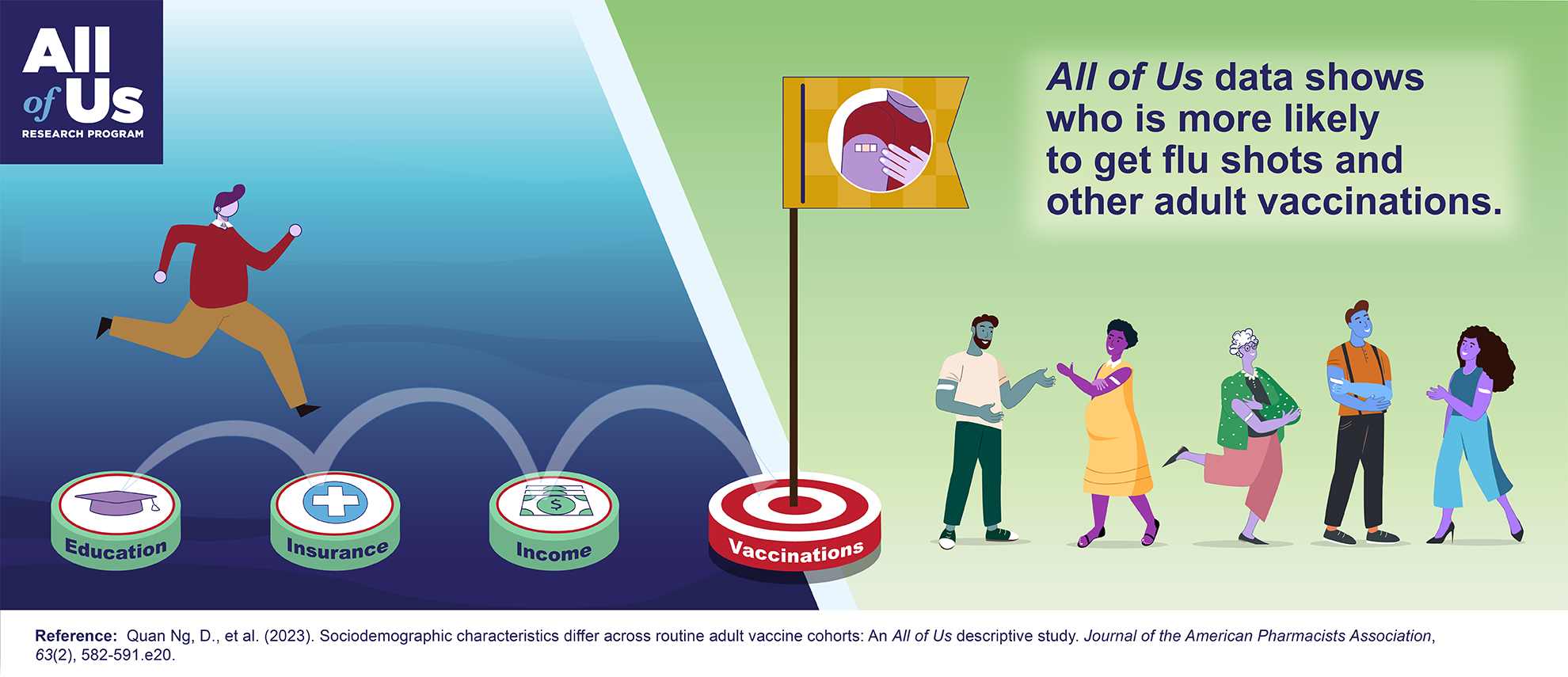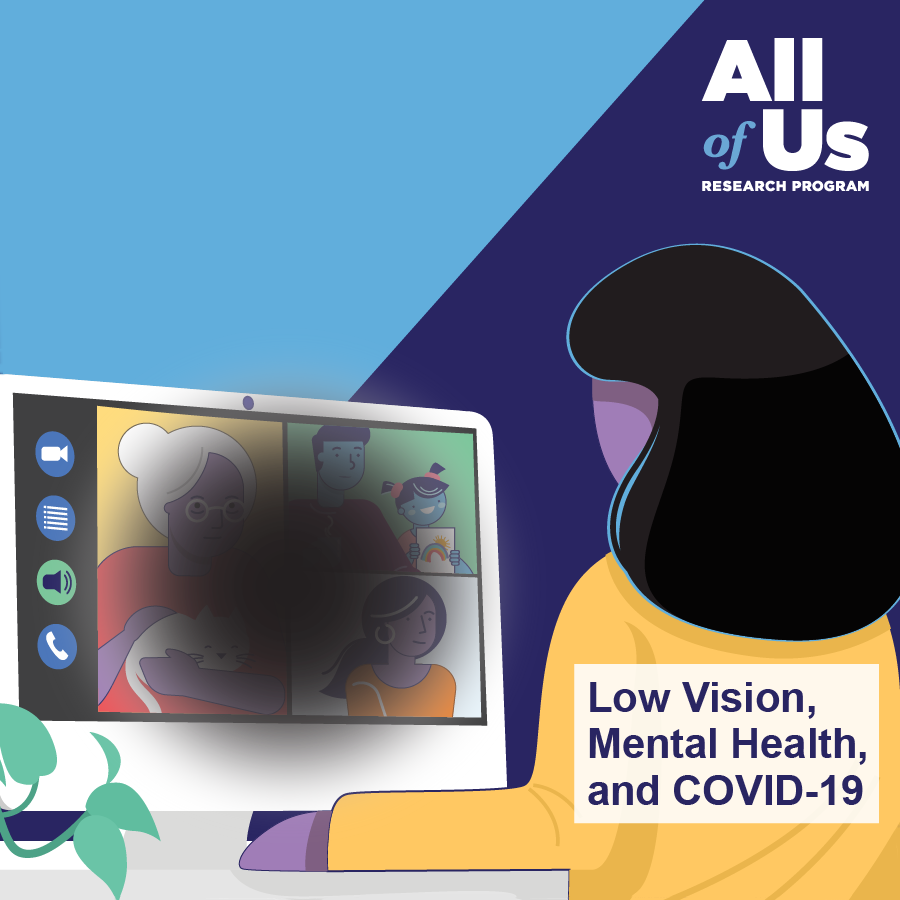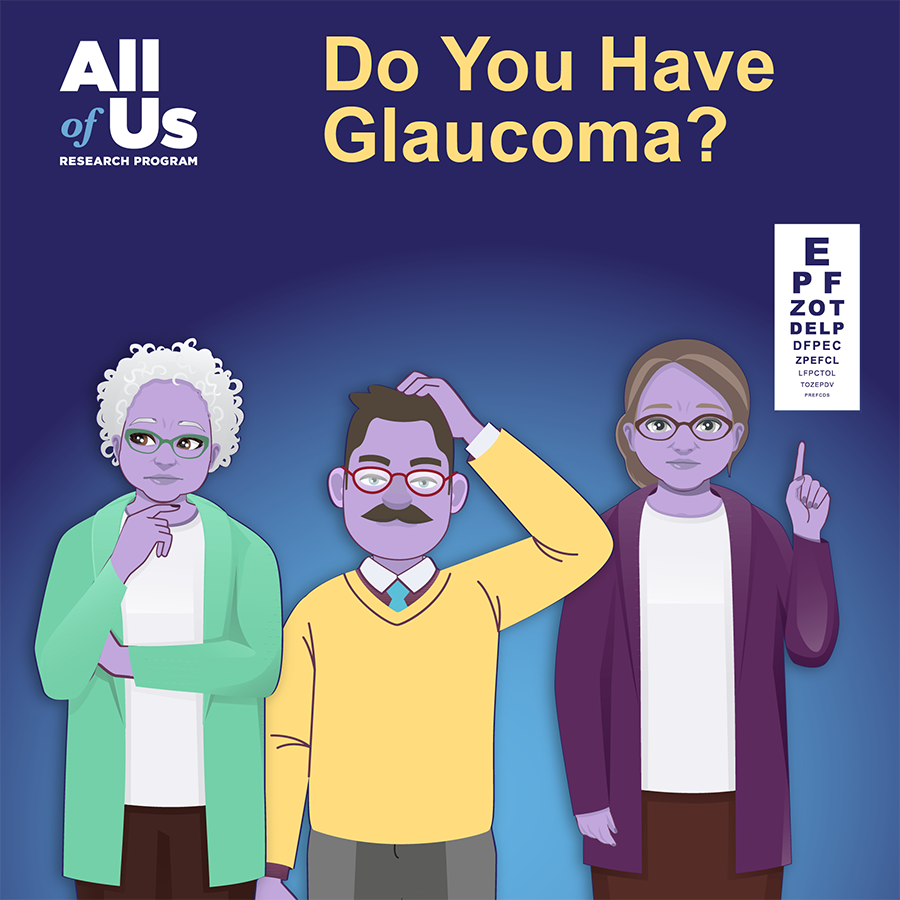
Key points
- Getting vaccinated can protect your health and the health of your community.
- Researchers used All of Us data to study adults with certain routine vaccinations in their health records.
- Vaccinated All of Us participants were more likely to have higher incomes, high school diplomas, and health insurance than other participants.
Getting vaccinated is the best way to prevent many diseases. People may need different vaccines depending on their age, health, and lifestyle. But not everyone gets their recommended vaccines, and researchers want to understand why.
In a new study, researchers used All of Us data to describe participants who received vaccines for any of the following conditions:
- Seasonal flu (influenza)
- Hepatitis B virus (HBV)
- Human papillomavirus (HPV)
- Pneumococcal disease in adults younger than 65
- Pneumococcal disease in adults 65 and older
Public health experts can use the study’s results to find better ways to get more people vaccinated.
The results were published in the Journal of the American Pharmacists Association.
All of Us Connects Social and Health Data
Many past studies about vaccination trends looked at only one vaccine and one health, social, or lifestyle factor at a time. In this study, the researchers studied the connections between many different factors and five vaccines. They did this using data from All of Us surveys and electronic health records (EHRs).
First, the researchers identified how many All of Us participants had any of the five routine vaccinations in their EHRs. For example, the researchers found that 15,346 participants whose EHR listed a flu shot for the 2017 flu season (September 2017 to May 2018).
Then, the researchers pulled the following details for each vaccination group:
- Sex assigned at birth
- Race
- Ethnicity
- Education level
- Household income
- Health insurance status
- General health
For each vaccination group, the researchers looked at each of these details and compared them with those of all the other All of Us participants. For example, 96% of All of Us participants with a flu shot on record had health insurance. Among all other All of Us participants, only 90% had health insurance. This difference suggests that when someone has insurance, they are more likely to get a flu shot.
The researchers also found that vaccinated participants were more likely to have higher incomes and a high school diploma.
One group of vaccinated participants seemed to be different from the others: those who got a pneumococcal shot before age 65. This vaccine is recommended before age 65 for people who have a risk factor for pneumonia, such as tobacco use or diabetes. Participants in this group were more likely to have health risks, have lower incomes, and use cigarettes and alcohol more than the other vaccination groups.
All of these results are similar to what previous studies have found.
Research Continues to Grow With All of Us
Vaccination trends across different groups can be difficult to study. One reason is that vaccination records are usually not stored in one place, such as an EHR. For example, the researchers found that only about 5 of 100 All of Us participants’ EHRs mentioned a flu shot for the 2017 flu season. This is very different from the nearly 40 in 100 adults in America who got flu shots that season, according to the Centers for Disease Control and Prevention. It is likely that more All of Us participants got a flu shot that season but that it was not noted in their EHRs. If so, then the All of Us dataset is missing some vaccination data.
Still, the results of this study may help public health experts understand who is less likely to get the vaccinations they need. Then the experts can find strategies to help more people get vaccinated.
All of Us data continues to serve as a great resource for health research, thanks to participants volunteering their data. The depth and diversity of the dataset, which includes information about the many social, economic, and lifestyle factors that influence our health, make it promising for future studies about vaccination trends.
The researchers for this study note that they are looking forward to more kinds of data being shared as All of Us gets closer to enrolling one million participants.
Interested in All of Us?
- Read more research highlights.
- Learn about participation in the program.
Conduct research with All of Us
- Learn about opportunities for researchers.
- Find funding to support research using All of Us data.
- See more research projects made possible by All of Us data and tools.


